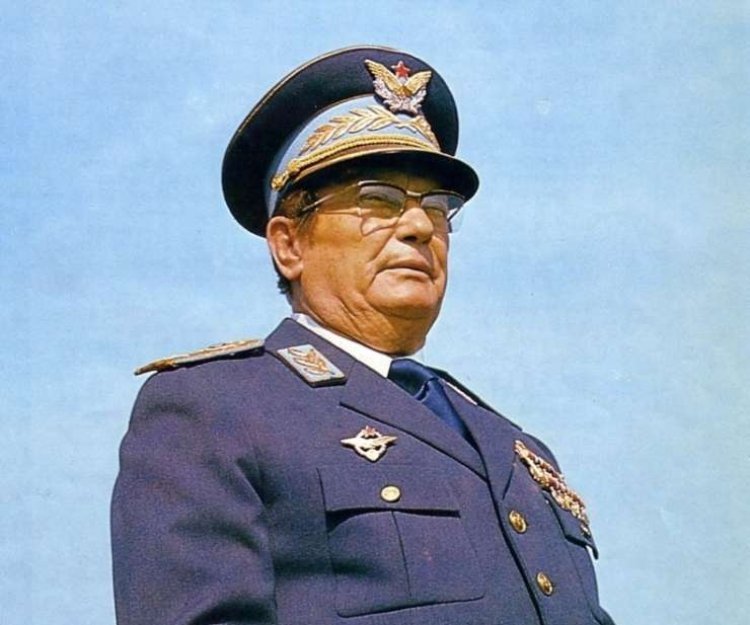Joseph Tito

In 1934, Joseph Tito became prime minister, he was appointed as the first president of the Republic of Yugoslavia in 1953. He was awarded the rank of Marshal as Supreme Commander of the Yugoslav Army. He approved a new constitution and rebuilt the Yugoslav Army, which became one of the most powerful European armies at the time.
Tito was one of the advocates of non-alignment and an opponent of the policy of Joseph Stalin, the leader of the Soviet Union. He called for his policy concerning the multiple methods ; each state adopted a specific approach. Stalin did not like this matter as he thought that it was a Kind of rebellion. Thus, he expelled Tito from the Organisation of Comintern. He called it, "communism Titoism" as a kind of cynicism and disregard for his policy. Over time, this title became applied to all communist currents that call for national independence and not succumb to the socialism of the Soviet Union.

After the separation of Tito from the Soviet Union, he exchanged economic aid with the countries of the Association of Asia and Africa, but he did not accept aid from the West, and after the death of Stalin in 1953 AD, Tito began to restore his relationship with the Soviet Union and Tito did not want to stand with anyone during the Cold War.
At the end of the year 1954 AD, the first meeting of Gamal Abdel Nasser and Tito was, followed by another stay in the Indonesian city of Bandung in 1955 AD, where President Joseph Tito met the Egyptian leader Gamal Abdel Nasser on the sidelines of the Bandung Conference called by the late fighter Ahmed Sukarno, then President of Indonesia, It was attended by 29 countries from the continents of Asia and Africa, and was attended by Indian Prime Minister Jawaharlal Nehru and Chinese Chuan Lai. Its most prominent result was the establishment of the Afro-Asian Group at the United Nations, and then the Non-Aligned Movement.
He had a strong relationship with the Egyptian leader Gamal Abdel Nasser, who considered him his best friend. President Joseph Tito visited Cairo several times, and the strength of this relationship was evident during the war. He cut all diplomatic relations with Israel after the 1967 war. Tito supported the Egyptian army with 100 tanks to compensate for the losses of the Egyptian army. In the heart of the Egyptian capital, Cairo, Joseph Tito was named after one of the Its most important streets and axes.

In 1979, President Joseph Tito's health condition worsened, as he was suffering from an arterial blockage in his left leg. After a long treatment trip, the doctors decided to amputate his leg, only to get worse and die on May 4, 1980, and mourning was declared in the Republic of Yugoslavia for seven days. A solemn funeral was prepared, attended by most leaders and leaders from different countries of the world.
